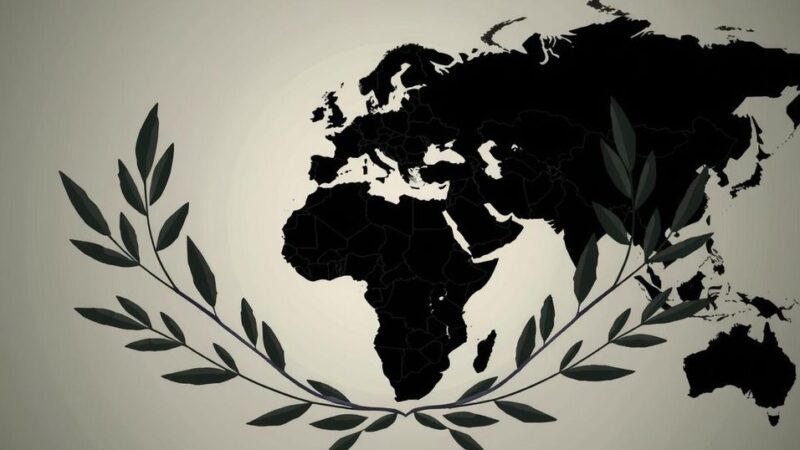The United States holds a powerful position in global politics, often shaping international relations and conflicts, particularly in the Middle East. With its complex ties to allies and adversaries, recent conflicts emphasize the need for diplomatic resolutions. The shift in regional dynamics following significant upheaval calls for a reassessment of power relationships, while the Palestinian issue remains pivotal for long-term stability and peace in the region.
The United States stands as the world’s leading economic power and a force in international relations, demanding that nations adapt to its influence. This power dynamic is particularly pronounced under the presidency of Donald Trump, where global leaders, from China to Russia, closely monitor U.S. policies. America’s military and economic capabilities allow it to decisively shape geopolitical landscapes, often rendering adversaries powerless and allies in complex, sometimes contentious relationships.
The U.S. plays a significant role in mediating conflicts, particularly in the Middle East, though such involvement is fraught with complications due to its staunch alliance with Israel. The recent violence in Gaza and Lebanon underscores the delicate balance of power and the necessity for diplomatic engagements to restore peace. However, the U.S.’s influence often comes at a cost, reflecting its complex ties with regional players.
In Lebanon, the aftermath of regional upheaval is felt acutely. With Hezbollah diminished, the new Lebanese leadership, under Prime Minister Nawaf Salam, seeks to navigate the changes imposed by both internal dynamics and external pressures, particularly from the U.S. Deputy envoy Morgan Ortagus has insisted on the new government reflecting the post-earthquake balance of power, underscoring the ongoing struggle for stability in the region.
The ramifications of the geopolitical earthquake extend into Syria, where President Ahmad Al-Sharaa is advocating for regional integration amid a shift in power. Iran’s position has weakened in some areas, though it remains a pivotal player. Meanwhile, the U.S. seeks a renewed dialogue with Iran about its nuclear program, underlining the complexity of these layered relationships.
A substantial issue remains the lack of a viable solution to the Palestinian plight. The long-standing conflict necessitates a two-state solution, which is recognized by many Arab and European nations. Such an approach is essential for demarcating borders, ensuring rights for Palestinians, and fostering regional stability, enabling governments to prioritize economic growth over ongoing conflict.
The United States continues to exert unprecedented influence on global dynamics, particularly in the Middle East, where its roles as mediator and ally present both challenges and opportunities. As the region navigates the aftermath of conflict and shifting power balances, particularly with the weakened position of Hezbollah and Iran, calls for a renewed focus on the Palestinian issue emerge as essential for achieving enduring peace. A comprehensive two-state solution stands as the fundamental requirement for stabilizing the region and allowing nations to progress sustainably without the burden of conflict.
Original Source: www.arabnews.com





